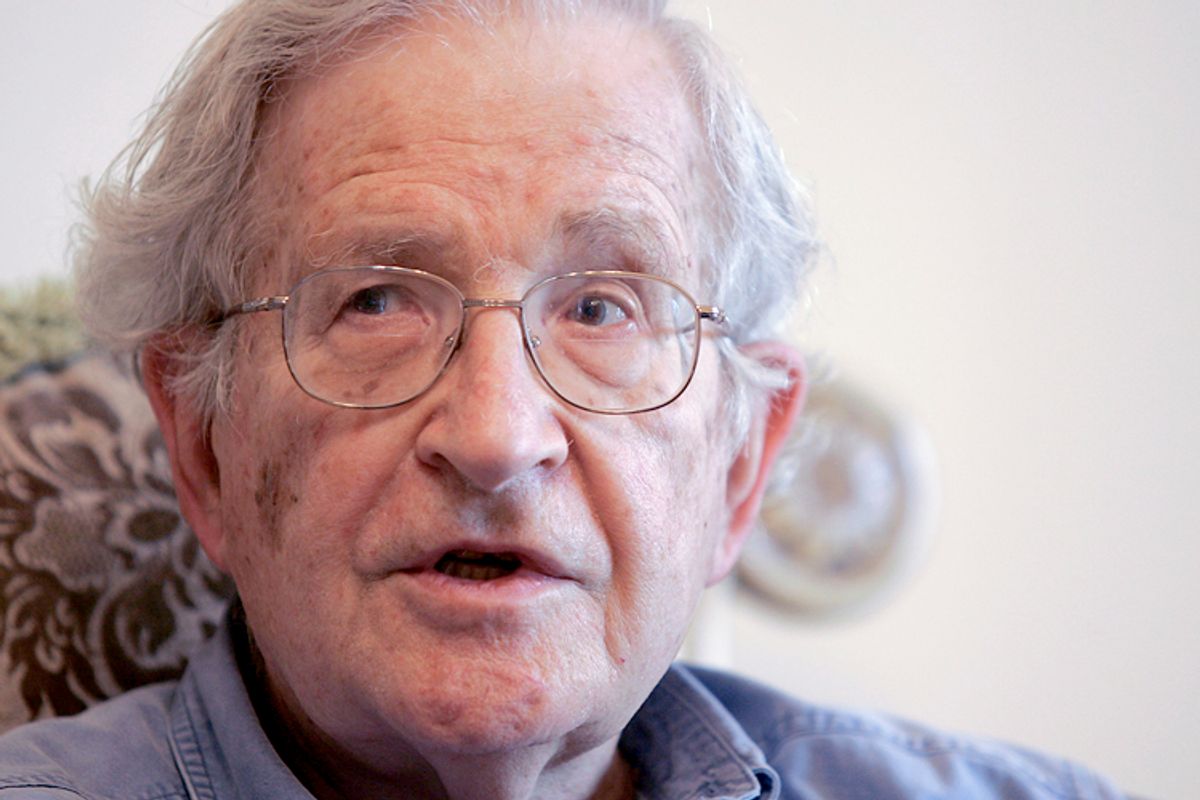With a mega-merger between Comcast and Time Warner Cable in the works, the Center for Responsive Politics' OpenSecrets blog has released a report detailing the "revolving door" between Comcast and the FCC, raising obvious questions about potential conflicts of interest among those tasked with maintaining a national telecommunications network that serves the interests of the American people rather than Comcast's bottom line:
So how wide is the revolving door between the telecommunications giant and the FCC? For Comcast's in-house lobbyists, it's significant and still swinging. [...] 18 people have both lobbied for Comcast and spent time in the public sector. Of those, 12 are currently registered lobbyists for Comcast, with five of them having spent time at the FCC.
Perhaps it's unfair to single out Comcast and the FCC here: When it comes to regulatory agencies and lobbyists, the culture of the revolving door has recently become as American as apple pie -- despite some measures that attempt to minimize its corrosive, corrupting influence. As just one example, the New York Times' DealBook reported in February that laws meant to prohibit congressional staffers from leaving for six- or seven-figure lobbying gigs -- by not allowing them to lobby for a full year after working on the Hill -- have been patently ineffective:
A top aide to a Republican congressman from Arizona helped promote a legislative plan to overhaul the nation’s home mortgage finance system. Weeks after leaving his government job, he reappeared on Capitol Hill, now as a lobbyist for a company poised to capitalize on the plan.
A former counsel to Democrats on the House Financial Services Committee left Capitol Hill a year ago. He, too, returned to the Hill just months later, lobbying committee aides on behalf of Wall Street giants like JPMorgan Chase and Bloomberg L.P.
Indeed, in Washington, the revolving door culture is so widespread and naked that OpenSecrets has taken to cataloging every individual who's walked through it -- the list stands at 7,007 names as of this writing.
It's hard to vilify a group large enough to fill 28 movie theaters -- they can't all be evil, even if they work in a thoroughly broken institution with the funny habit of corrupting and circumventing our democracy. Wall Street poses a similar moral quandary, as recently explored in books by Kevin Roose and Michael Lewis, two phenomenal reporters with a deep understanding of Wall Street's culture. Their recent books outline a world populated by more than just the prototypical "wolves" of Wall Street who cheerily quote Gordon Gecko and live for the booze, drugs and women. There are simply far too many people working on "The Street" to castigate them all as Caligulan and call it a day.
While this notion that institutions are the root of evil is not particularly new, it's important for liberals to keep in mind; by and large, the left is far too willing to lay the blame for all society's ills at the feet of the Koch brothers, Rupert Murdoch and Sheldon Adelson. (Which is not to dismiss their paucity of character -- it's just irrelevant here.)
Noam Chomsky put it this way:
When you look at a corporation, just like when you look at a slave owner, you want to distinguish between the institution and the individual. So slavery, for example, or other forms of tyranny, are inherently monstrous. The individuals participating in them may be the nicest guys you can imagine. Benevolent, friendly, nice to the children, even nice to their slaves. Caring about other people. I mean, as individuals they may be anything, but in their institutional role, they’re monsters, because the institution is monstrous.
As the most reprehensible legacy in all of human history, slavery is a vital analogy for reasons beyond its explanatory force; we live in a world today where the corruption of our institutions is largely taken as axiomatic. (While the absence of real consequences for those most responsible for the Great Recession helped spark the Tea Party movement and the short-lived Occupy protests, it's notable that these popular movements didn't lead to any actual convictions.) And the complete absence of punishment for corruption and illegality tends to grow with time. Last week on "Democracy Now," host Amy Goodman asked Matt Taibbi, perhaps the greatest reporter on Wall Street's crimes in the modern era, which president was tougher on the denizens of Lower Manhattan, Bush Jr. or Obama. His answer was unequivocal: "Oh, Bush, hands down. And this is an important point to make, because if you go back to the early 2000s, think about all these high-profile cases: Adelphia, Enron, Tyco, WorldCom, Arthur Andersen. All of these companies were swept up by the Bush Justice Department. [...] Fast-forward again to the next big crisis, and how many people have we got — have we actually put in jail? Zero."
When powerful, corrupt and thoroughly entrenched institutions start to seem beyond our reach to control or contain, we must turn our minds back to the horror of slavery, to be reminded that even seemingly unstoppable evil can be fought and defeated. Obviously, slavery's supporters held unspeakable political, economic and military power. And yet it was defeated, because its opponents were able to frame the institution -- and not the individuals -- as evil. Through an enormous, and yes, eventually bloody, campaign, the perverse incentives that propagated and heightened entrenched wealth and power were defeated by an American people who'd put an abolitionist in the Oval Office -- and supported him in his quest to rid America of her shameful "original sin."
Liberals must embrace this strategy; we must work to rid ourselves of evil institutions, rather than spending our time and energy attempting to diminish the power of the Koch brothers and their ilk, mistakenly assuming that this will fix the deeper, institutional problems that have propelled these monsters in the first place.

Shares